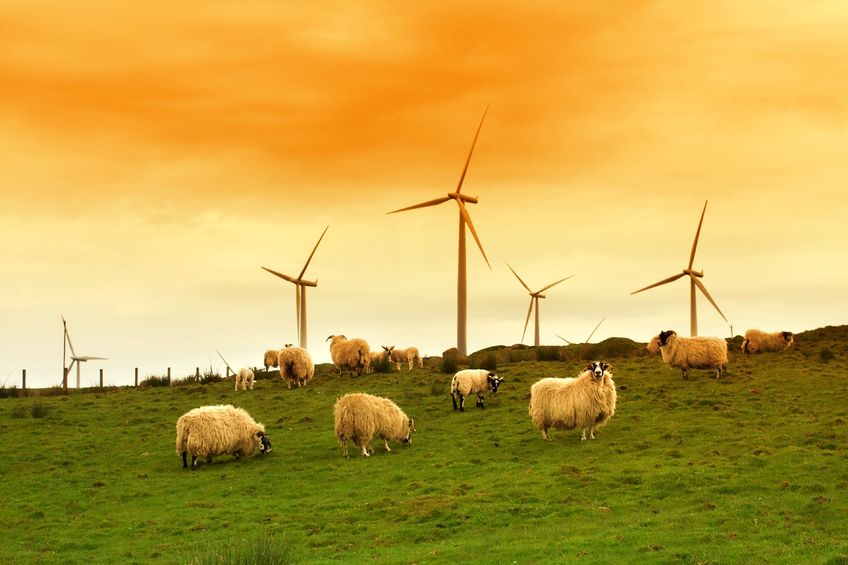
Improvements to productivity, carbon capture and renewable energy are the 'most effective ways' to reach agricultural net zero targets, the NFU says.
The farming industry is aiming to reach net zero greenhouse gas emissions across England and Wales by 2040 as a contribution to a new target of 2050 for the whole of the UK.
It comes as the Committee on Climate Change publishes its report calling for the UK to drastically reduce its greenhouse gas emissions to zero over the next three decades.
The recommendations, released on Thursday 2 May, aim to slash emissions by 80 per cent what they were in 1990.
But major changes are needed to meet the new target, the committee's report says.
These include a supply of low-carbon electricity, the introduction of electric vehicles, stopping biodegradable waste going to landfill, increasing tree planting and measures to reduce emissions on farms.
The NFU said battling climate change is 'vital' and similar organisations are 'aligned' to help the industry play its part.
However, curbing British food production and exporting to countries which may not have the same environmental conscience, or ambition to reduce their climate impact, will not help the UK reach its new target, the union says.
Deputy president Guy Smith said: “We must farm smarter, focussing on improving productivity, encouraging carbon capture and boosting our production of renewable energy.
“In Britain, 65% of our farmland is best suited to grazing animals, so our ambition is that the climate impact of UK grazing is amongst the lowest in the world.
“Already, research from the UN’s Food and Agriculture Organisation shows that beef production in Western Europe is 2.5 times more carbon-efficient than the global average. At the same time UK farmland conserves important carbon stocks in England’s uplands,” he said.
'Radical changes'
The Nature Friendly Farming Network (NFFN) said farmers can be a big part of the solution as long as 'radical changes' in farming practices take place.
Chairman Martin Lines commented: “Last year’s heatwave, made thirty times more likely by climate change, was a reminder to all farmers that we are on the frontline of the climate crisis.
“Farmers right across the country are already finding ways to cut the emissions, be that through altering the way we feed our livestock, to improving the management of soils.”
He added: “If we don’t work with nature and restore the natural balance we are threatening food security for future generations.”
This was echoed by the Soil Association, which said a transition to 'green farming systems' would 'dramatically reduce' agricultural emissions.
“These changes, like improving soil health to lock in carbon, reducing reliance on fossil-fuel based fertilisers and adding more trees into the farmed landscape, can and must be implemented more widely,” Gareth Morgan, Head of Policy, said.
The Committee's report notes that if other countries follow the UK's new target, there’s a 50% chance of staying below the recommended 1.5C temperature rise by 2100.
